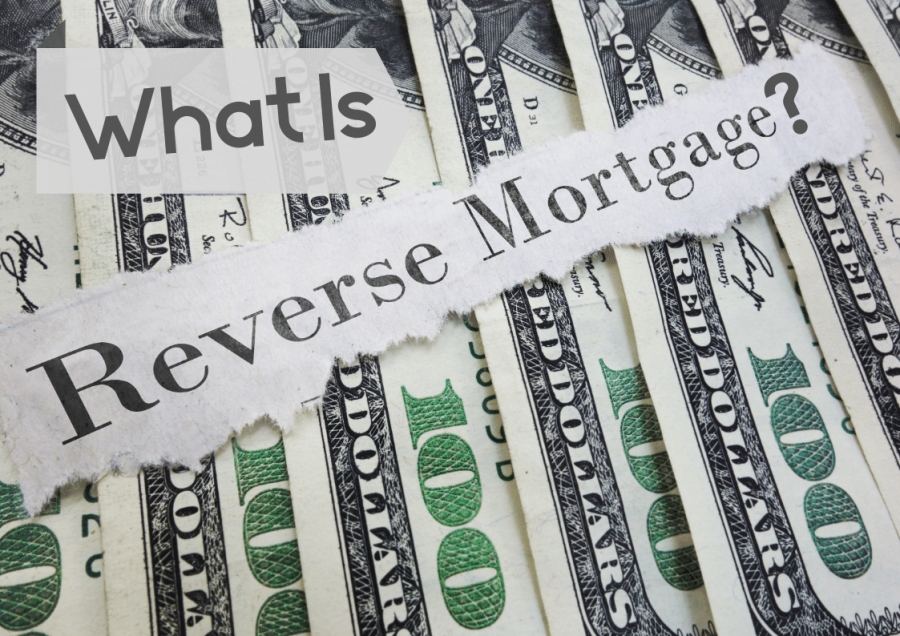A reverse mortgage is a loan that allows you to convert part of the equity in your home into cash without having to sell your home or pay additional monthly bills. Unlike a forward mortgage — the type of mortgage that is used to buy a home — a reverse mortgage doesn’t require the homeowner to make any monthly mortgage payments.
You can choose to receive the funds as a lump sum, fixed monthly payment, or line of credit that will be there when you need it. Like a traditional mortgage, when you take out a reverse mortgage loan, the title to your home remains in your name.
With a reverse mortgage, the loan is repaid when the borrower no longer lives in the home. Interest and fees are added to the loan balance each month and the balance grows.
How Does Reverse Mortgage Work?
The reverse mortgage loan which was specifically designed for homeowners aged 62 or older, offers all the benefits of a traditional line of credit that you can get from a bank but with additional benefits — including a flexible repayment feature.
At a minimum, to be eligible for a reverse mortgage loan, you must be 62 years of age or older. You must also have a certain percentage of equity in the home and the house must be your principal residence.
With a reverse mortgage, the amount that the homeowner owes to the lender goes up — not down — over time. This is because interest and fees are added to the loan balance each month. As your loan balance increases, your home equity decreases.
Although it might sound like a dream so far, a reverse mortgage loan is not free money. It is a loan where borrowed money + interest + fees each month = rising loan balance. The homeowners or their heirs will eventually have to pay back the loan, which is usually done by selling the home.
As one of the requirements of the loan is that the home must be the borrower’s principal residence, the borrower is not required to pay back the loan until the home is sold or otherwise vacated.
As long as the borrower lives in the home, he or she is not required to make any monthly payments towards the loan balance. However, the borrower must remain current on property taxes, homeowners insurance, and homeowners association dues — if applicable.
Types of Reverse Mortgage
As you consider whether a reverse mortgage is right for you, also consider which type of reverse mortgage might best suit your needs. There are three types of a reverse mortgage. The most common is the home equity conversion mortgage or HECM.
- Single-purpose reverse mortgages are the least expensive option. They’re offered by some state and local government agencies, as well as non-profit organizations, but they’re not available everywhere. These loans may be used for only one purpose, which the lender specifies. For example, the lender might say the loan may be used only to pay for home repairs, improvements, or property taxes. Most homeowners with a low or a moderate income can qualify for these loans.
- Proprietary reverse mortgages, on the other hand, are private loans that are backed by the companies that develop them. If you own a higher-valued home, you may get a bigger loan advance from a proprietary reverse mortgage.
- Home Equity Conversion Mortgages (HECMs) are federally-insured reverse mortgages and are backed by the US Department of Housing and Urban Development (HUD). HECM loans can be used for any purpose. It’s also possible to use a reverse mortgage called a “HECM for purchase” to buy a different home than the one you currently live in.
Types of Proceeds
When you take out a reverse mortgage, you can choose to receive the proceeds in one of six ways:
- Lump-sum: Get all the proceeds at once when your loan closes. This is the only option that comes with a fixed interest rate — the other five have adjustable interest rates.
- Equal monthly payments (annuity): For as long as at least one borrower lives in the home as a principal residence, the lender will make steady payments to the borrower. This is also known as a tenure plan.
- Term payments: The lender gives the borrower equal monthly payments for a set period of the borrower’s choosing, such as 10 years.
- Line of credit: Money is available for the homeowner to borrow as needed. The homeowner only pays interest on the amounts actually borrowed from the credit line.
- Equal monthly payments plus a line of credit: The lender provides fixed monthly payments for as long as at least one borrower occupies the home as a principal residence. If the borrower needs more money at any point, they can access the line of credit.
- Term payments plus a line of credit: The lender gives the borrower equal monthly payments for a set period of the borrower’s choosing, such as 10 years. If the borrower needs more money during or after that term, they can access the line of credit.
The question now is: is it worth it? The question can be best answered by you, as you know your circumstances best. A reverse mortgage can be a helpful financial tool for senior homeowners who understand how the loans work.









